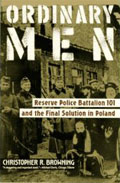Pastor Tim wasn’t supposed to preach today. He and Tara were supposed to have their new baby last week, and Tim’s dad, Gerald, was slotted to speak in his place. But the baby, alas, seems in no hurry to greet the world. And so there he was, speaking about pride, one of the Seven Deadly Sins in this “Vice-Busters” series.
He’s been using a Bible figure with each sin, and today he used Joseph–that spoiled kid who thought he was better than his brothers (and was, actually, but that’s beside the point)–to go along with pride. As an aside, Tim pointed out that, if you want good models of family life, the Bible is not the place to go. That’s certainly true. You don’t find healthy families in the Bible, just lots of dysfunction.
Why is that? When God put the Bible together, he was fully aware of what he was leaving out.
We’re big on the family–family time, family values, strengthening the family, protecting the family, etc. We want our churches to be family-oriented, and we constantly stress the need for strong families. We take the gloves off in the political arena to protect our view of the “traditional,” as-God-intended-it family.
You would think the family is a central theme of the Bible. But it’s not. Why is that? Is it okay to ask that? Does God view the family differently than we do? Is our view of the family wrapped up in our culture? Why didn’t God ever chastise those Old Testament heroes for having multiple wives? Did God care, or not? Don’t worry–I’m not headed toward advocating polygamy or gay marriage. I’m just askin’. In sort of a quasi-heretical way.
When Jesus spoke about the family, it was usually about alienating family members and redefining the family as the total body of Christ (“For whoever does the will of my Father in heaven is my brother and sister and mother”). The New Testament writers give some basic instructions regarding family roles, parenting, and husband-wife relationships, but not as much attention as they give to church roles.
Why doesn’t the Bible give us examples of good families? “What about Mary and Joseph?” you ask. But for all we know, Joseph, despite his superb start, could have become an alcoholic and committed suicide with a nail gun. We don’t know.
Is there some heavenly paradigm that we’re missing? And could that be the reason so many “good Christian families” go haywire? Are we doing family in a way which seems right to us, but isn’t really what God had in mind? Am I going absolutely nuts?
Okay, I can tell that you’re getting really really mad, so I’ll stop. But…I’m just askin’.


 Here are three good novels I’ve read in the last year. All are somewhat similar in that the protagonist becomes a murderer.
Here are three good novels I’ve read in the last year. All are somewhat similar in that the protagonist becomes a murderer. I read Elie Weisel’s Night as part of a literature class in 11th grade, and ever since, I’ve been drawn to Holocaust literature. It’s not fun stuff to read. It’s pretty horrifying. What draws me? Probably the question which thunders to the forefront with each book: “How could people do this?”
I read Elie Weisel’s Night as part of a literature class in 11th grade, and ever since, I’ve been drawn to Holocaust literature. It’s not fun stuff to read. It’s pretty horrifying. What draws me? Probably the question which thunders to the forefront with each book: “How could people do this?”


